Frequently Asked Questions
Being involved in an accident on land or at sea in Louisiana can leave you with many questions about your legal rights and options. Browse Scott Vicknair, LLC’s online FAQs section for answers to some of the most common queries we receive.
AllAccidentes de CamiónAccidentes de camionesAccidentes de cocheAccidentes de motocicletaAccidentes en plantas industrialesAED LiabilityBirth InjuryBurn InjuryCar AccidentsChemical Plant ExplosionConstruction AccidentExplosión en una Planta QuímicaIndustrial Plant AccidentsJones ActLesión en el lugar de trabajoLesiones personalesLey MarítimaLongshore and Harbor Workers’ Compensation ActMaritime LawMotorcycle AccidentsPersonal InjuryResponsabilidad de AEDSlip and FallTruck AccidentsWills & TrustsWorkplace Injury
-
¿Qué hacer si tengo un accidente con un camión de U-Haul en Luisiana?

-
What to Do if I’m in an Accident with a U-Haul Truck in Louisiana?

-
¿Cubre el seguro un accidente de motocicleta en Luisiana?
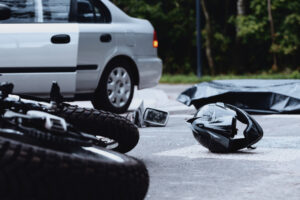
-
Does Insurance Cover a Motorcycle Accident in Louisiana?

-
¿Debería contratar a un abogado para un accidente de motocicleta en Nueva Orleans?

-
Should I Get a Lawyer for a Motorcycle Accident in New Orleans?

-
¿Qué hacer si tengo un accidente con un camión de Enterprise en Luisiana?

-
What to Do If I’m in an Accident with an Enterprise Truck in Louisiana?

-
What Happens if I’m Hit by an Uninsured Driver in New Orleans?

-
How Much Can You Sue for a Motorcycle Accident in Louisiana?

-
What to Do After a Motorcycle Accident in New Orleans

-
What to Do if I’m in an Accident with a Penske Truck in Louisiana?

-
What to Do if I’m in an Accident With a Budget Truck in Louisiana?

-
How Much Are Most Truck Accident Settlements in Louisiana?

-
Which States Have Hands-Free Driving Laws
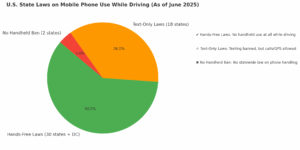
-
What Should I Do After a Hit and Run Accident in Louisiana?

-
What Should I Do if I Get in an Accident in a Rental Car?

-
New Orleans USPS Truck Accident Lawyer

-
What Happens if an Uninsured Driver Hits You in Louisiana?

-
What to Do if I’m in an Accident with an Amazon Truck?

-
What to Do if I’m in an Accident with a FedEx Truck?

-
What to Do if I’m in an Accident with a DHL Truck?

-
What to Do if I’m in an Accident with a UPS Truck?

-
Who is Liable in a Delivery Truck Accident?

-
What Is Pure Comparative Negligence in Louisiana?

-
How Much Do Personal Injury Lawyers Charge in Louisiana?

-
How Much Do Car Accident Lawyers Charge in Louisiana?

-
Should I Hire a Personal Injury Lawyer?

-
What is the Personal Injury Statute of Limitations in Louisiana?

-
How Long Do I have to File a Car Accident Lawsuit in Louisiana?

-
How Long Do I have to File a Truck Accident Lawsuit in Louisiana?

-
How Long Will My Car Accident Lawsuit Take to Settle?

-
How Long Does a Personal Injury Case Take to Settle?

-
Should I Hire a Car Accident Lawyer?

-
¿Tendré que pagar impuestos sobre mi acuerdo del Jones Act?

-
¿Quién es el responsable cuando me chocan por detrás en un accidente de auto?
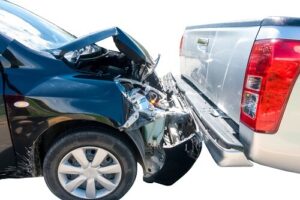
-
Cuándo contratar a un abogado de lesiones marítimas

-
¿Cuándo se aplica la ley marítima federal a los trabajadores de petróleo y gas?

-
Lo que debes saber sobre los accidentes de coche en Louisiana
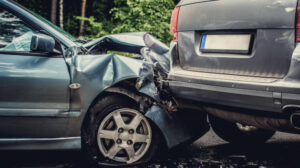
-
Qué saber sobre los desfibriladores automáticos externos (AED) desmintiendo mitos
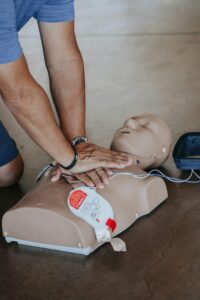
-
¿Qué hacer si te lesionas en un accidente en una planta industrial?

-
¿Qué hacer si resultas herido en una explosión en una planta química?

-
¿Qué hacer si sufres una lesión por quemadura en una planta química?

-
¿Qué hacer si me lesiono en un accidente en alta mar?

-
¿Qué hacer si estoy en un accidente con una grúa?
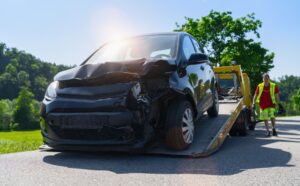
-
¿Qué hacer si estoy en un accidente con un camión en movimiento?

-
¿Qué hacer si estoy en un accidente con un camión de reparto?

-
¿Qué hacer si estoy en un accidente con un camión de construcción?

-
¿Qué debo hacer si resulté herido mientras estaba de vacaciones en Louisiana?
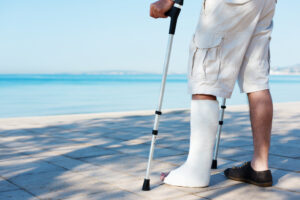
-
¿Qué hacer si un ser querido está en un accidente fatal de camión?
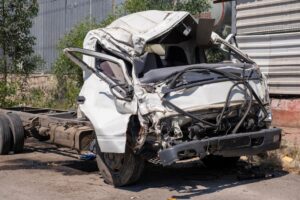
-
Qué hacer si un ser querido muere en un accidente laboral industrial

-
Qué hacer después de un accidente con un camión de 18 ruedas

-
Qué hacer después de un accidente de camión
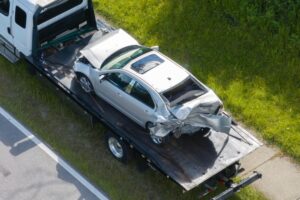
-
Qué hacer después de un accidente de motocicleta en Louisiana

-
Qué hacer después de un accidente de auto en Louisiana
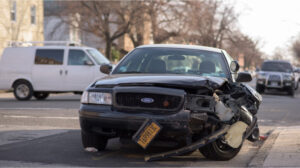
-
¿Qué debe hacer un marinero de cubierta después de sufrir una lesión en el trabajo?
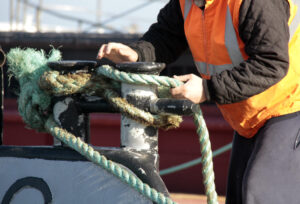
-
¿Qué es la Ley de Compensación de Trabajadores Portuarios y de Puerto de los Estados Unidos?

-
¿Cuál es el estatuto de limitaciones para una reclamación bajo la Ley Jones?

-
¿Cuál es el promedio de indemnización por un accidente de camión de 18 ruedas?

-
¿Cuál es el promedio de indemnización por lesiones marítimas?

-
¿Qué es la Mejora Médica Máxima?

-
¿Qué es Mantenimiento y Curación en Casos de Lesiones Marítimas?

-
¿Qué es una lesión por explosión?
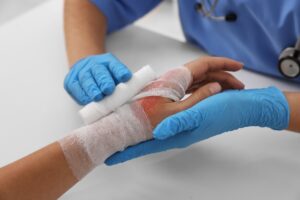
-
¿Qué lesiones están cubiertas por la USL&H?

-
¿Qué pasa si un conductor de camión me golpea y no tiene seguro?

-
¿Qué sucede si mi reclamo de USL&H es denegado?

-
¿Qué sucede si mi reclamo de la Ley Jones es denegado?

-
¿Qué sucede si un DEA estaba presente pero no se usó a tiempo?
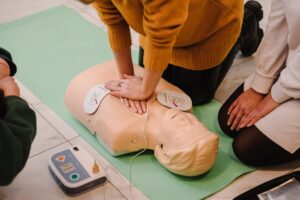
-
¿Qué factores afectan los acuerdos de demandas bajo la Ley Jones?

-
¿Qué evidencia se necesita en una demanda por desfibrilador?
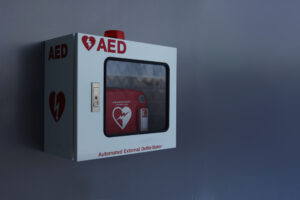
-
¿Qué cubre la Ley de Muerte en Alta Mar?

-
¿Qué daños están disponibles en una demanda por responsabilidad de AED?

-
¿Qué daños están disponibles en un caso de lesiones marítimas?

-
¿Qué empresas están obligadas a tener dispositivos de DEA?
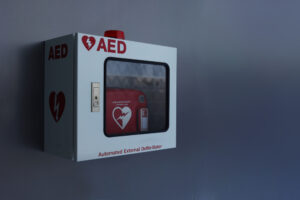
-
¿Qué beneficios están disponibles bajo el USL&H?

-
¿Cuáles son mis derechos como contratista bajo la Ley Jones?

-
¿Cuáles son las lesiones marítimas comunes?

-
¿Cuáles son las causas comunes de lesiones en las plantas industriales?

-
¿Debería contratar a un abogado de accidentes de camiones?

-
¿Cómo me ayudará un abogado de accidentes de camión?

-
¿Cómo buscar una compensación por una lesión causada por una explosión en una planta?

-
¿Cómo buscar una compensación por una lesión en una planta química?

-
Cómo negociar un acuerdo de accidente de camión más alto

-
El Quién, Qué, Dónde, Cuándo y Por Qué de Presentar un Gravamen Bajo la Ley de Obras Públicas de Louisiana.

-
¿Cuánto cobran los abogados de accidentes de camiones en Louisiana?

-
¿Cuánto cobran los abogados de lesiones marítimas en Louisiana?
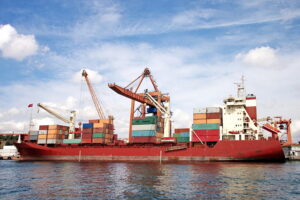
-
¿Cuánto tiempo tomará resolver mi demanda por accidente de camión?
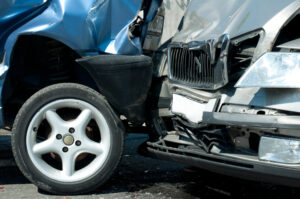
-
¿Cuánto tiempo tengo para presentar una reclamación de desfibrilador AED?
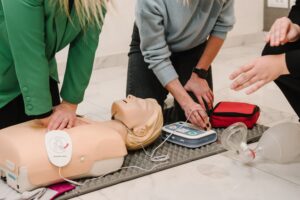
-
¿Cómo se determina la responsabilidad en accidentes de camiones de 18 ruedas?

-
El mantenimiento inadecuado causa accidentes comerciales de camiones prevenibles.
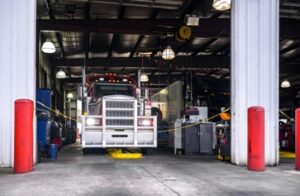
-
¿Cómo presento una reclamación bajo el USL&H?

-
¿Cómo funcionan las demandas por accidentes de camiones comerciales?
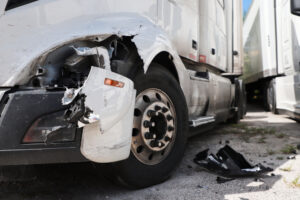
-
Cómo ocurren las lesiones durante el parto

-
Cómo un abogado de testamentos puede ayudarte
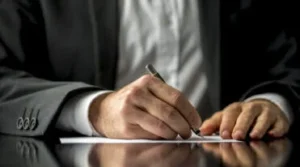
-
Cómo una caída puede causar lesiones en la cabeza

-
¿Se aplica la ley marítima a los accidentes en ríos y lagos?

-
¿Tienen los trabajadores portuarios remedios bajo la ley marítima?

-
¿Tienen las empresas la obligación de mantener DEA?
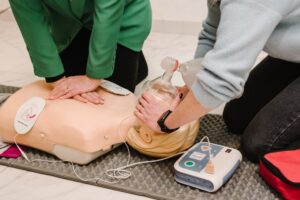
-
¿Pueden las escuelas ser demandadas por fallas o mal uso de DEA?

-
¿Puedo demandar a un aeropuerto por no utilizar o utilizar incorrectamente un DEA?

-
¿Puedo demandar a un gimnasio por no usar o usar incorrectamente un DEA?

-
¿Puedo presentar una reclamación de responsabilidad por AED si el operador no estaba capacitado?

-
¿Puedo presentar una demanda por muerte injusta si un DEA falla?

-
¿Puedo presentar una reclamación por lesiones personales en otro estado?

-
¿Puedo presentar una reclamación si un DEA falla durante una emergencia?

-
¿Puede una empresa ser demandada por el mal uso o la falta de un DEA?
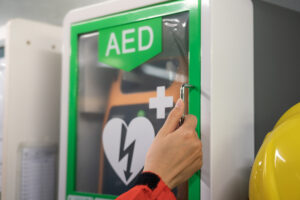
-
¿Son responsables el conductor del camión y la compañía de camiones por los accidentes?
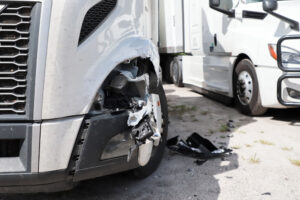
-
¿Son responsables los paramédicos si su desfibrilador no funciona?

-
Can I Sue an Airport for Failure to Use or Misuse of an AED?

-
Can I Sue a Gym for Failure to Use or Misuse of an AED?

-
Can I File a Claim if an AED Fails During an Emergency?

-
How do I File a Claim Under the USL&H?

-
What Injuries Are Covered by the USL&H?

-
What Happens if an AED was Present But not Used in Time?

-
Can I File an AED Liability Claim If the Operator Was Untrained?

-
Can I File a Wrongful Death Claim if an AED Fails?

-
What to Do if I’m Injured in an Offshore Accident?

-
When to Hire a Maritime Injury Lawyer

-
What Benefits Are Available Under the USL&H?

-
How Much Do Maritime Injury Lawyers Charge in Louisiana?

-
What Happens if My USL&H Claim Is Denied?

-
How Long do I Have to File an AED Defibrillator Claim?

-
Do Businesses Have a Duty to Maintain AEDs?

-
What Happens if My Jones Act Claim Is Denied?

-
What Are Common Maritime Injuries?

-
What is Maintenance and Cure in Maritime Injury Cases?

-
What is the U.S. Longshore and Harbor Workers’ Compensation Act?

-
What to Do if a Loved One is in a Fatal Truck Accident?

-
What to Do if I’m in an Accident With a Moving Truck?

-
What to Do if I’m in an Accident With a Delivery Truck?

-
What to Do If I’m in an Accident with a Construction Truck?

-
What to Do if I’m in an Accident with a Tow Truck?

-
What if a Truck Driver Hits Me & They don’t Have Insurance?

-
How Much do Truck Accident Lawyers Charge in Louisiana?

-
How Will a Truck Accident Lawyer Help Me?

-
What to Do After a Truck Accident

-
What to Do if a Loved One Dies in an Industrial Work Accident

-
How to Pursue Compensation for a Plant Explosion Injury?

-
How to Pursue Compensation for a Chemical Plant Injury?

-
What is a Blast Injury?

-
What Are Common Causes of Injuries at Industrial Plants?

-
What to Do if You Are Injured in a Chemical Plant Explosion?

-
What to Do if You Suffer a Burn Injury at a Chemical Plant?

-
What to Do if You’re Injured in an Industrial Plant Accident?

-
What does the Death on the High Seas Act Cover?

-
What Is the Statute of Limitations for a Jones Act Claim?

-
How Long Will My Truck Accident Lawsuit Take to Settle?

-
Should I Hire a Truck Accident Lawyer?

-
Are the Truck Driver & Truck Company Liable for Accidents?

-
How do Commercial Truck Accident Lawsuits Work?

-
What to Do if I Was Injured While on Vacation in Louisiana?

-
Can I File a Personal Injury Claim in Another State?

-
What Factors Impact Jones Act Lawsuit Settlements?

-
What Damages Are Available in a Maritime Injury Case?

-
Are Paramedics Liable if Their Defibrillator doesn’t Work?

-
What Companies Are Required to Have AED Devices?

-
What Damages Are Available in an AED Liability Lawsuit?

-
What Is the Average Maritime Injury Settlement?

-
What Should a Deckhand Do Following a Work Injury?

-
Will I Owe Taxes on My Jones Act Settlement?

-
Can Schools Be Sued for AED Failures or Misuse?

-
Can a Business Be Sued for Misusing or Not Having an AED?

-
What Evidence Is Needed in a Defibrillator Lawsuit?

-
How to Negotiate a Higher Truck Accident Settlement

-
What Is the Average Settlement for an 18-Wheeler Accident?

-
What to Do After an 18-Wheeler Accident

-
How Is Liability Determined in 18-Wheeler Accidents?

-
What Are My Rights as a Contractor Under the Jones Act

-
What to Know About Aeds Debunking Myths

-
How A Slip And Fall Causes Head Injuries

-
What is Maximum Medical Improvement

-
Who is at Fault When I Get Rear Ended in a Car Accident

-
How Birth Injuries Happen

-
Improper Maintenance Causes Preventable Commercial Truck Accidents

-
Does Maritime Law Apply to Accidents on Rivers and Lakes?

-
When Does Federal Maritime Law Apply to Oil and Gas Workers

-
How A Wills Lawyer Can Assist You

-
What to Do After a Louisiana Car Accident

-
The Who, What, Where, When, and Why of Filing a Lien Under the Louisiana Public Works Act

-
What You Should Know About Louisiana Car Accidents

-
What to Do After a Louisiana Motorcycle Accident

-
Do Dockworkers Have Remedies Under Maritime Law?
